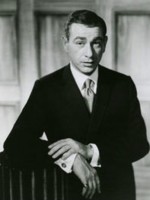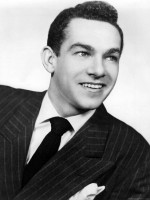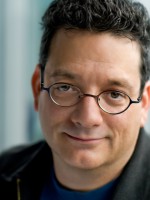When Jews Were Funny est un film canadien de genre Documentaire avec Howie Mandel
When Jews Were Funny (2013)

Si vous aimez ce film, faites-le savoir !
When Jews Were Funny is a documentary film by Canadian director Alan Zweig, released in 2013, which explores the role of Jewish comedians in the history of North American comedy and humour from the Borscht belt to the present day.
The film features interviews with and/or performance clips of a wide variety of Jewish comedy performers and writers of the 20th and 21st centuries, including Howie Mandel, Gilbert Gottfried, Rodney Dangerfield, Eugene Mirman, Marc Maron, Bob Einstein, Andy Kindler, Shelley Berman, Alan King, Judy Gold, Elon Gold, David Steinberg, Jackie Mason, Jack Carter, Norm Crosby, Henny Youngman, David Brenner, Shecky Greene, Mark Breslin, Cory Kahaney, Harrison Greenbaum, Simon Rakoff, Lisa Lambert, Larry Josephson and Michael Wex.
The film premiered on September 10, 2013 at the 2013 Toronto International Film Festival. It subsequently won the festival award for the year's best Canadian feature film.
^ "TIFF ’13: Zweig remembers the “Funny”". Real Screen, September 16, 2013.
^ "TIFF 2013: 12 Years a Slave wins film fest’s top prize". Toronto Star, September 15, 2013.
Acteurs
Commentaires
Postez un commentaire :
Suggestions de films similaires à When Jews Were Funny
Il y a 30 films ayant les mêmes acteurs, 8855 ayant les mêmes genres cinématographiques, 5529 films qui ont les mêmes thèmes (dont 156 films qui ont les mêmes 4 thèmes que When Jews Were Funny), pour avoir au final 70 suggestions de films similaires.Si vous avez aimé When Jews Were Funny, vous aimerez sûrement les films similaires suivants :

The Aristocrats (2005)
, 1h28Réalisé par Penn Jillette, Paul Provenza
Origine Etats-Unis
Genres Comédie, Documentaire
Thèmes Documentaire sur une personnalité, Politique, Langues et la traduction
Acteurs Jason Alexander, Hank Azaria, Shelley Berman, Lewis Black, David Brenner, Mario Cantone
Note63%





 , 1h31
, 1h31Origine Etats-Unis
Genres Documentaire
Thèmes Religion, Sport, Baseball, Documentaire sur le sport, Documentaire sur une personnalité, Documentaire sur la religion, Religion juive
Acteurs Dustin Hoffman
Note72%





The film was written by Pulitzer Prize winner Ira Berkow, and narrated by actor Dustin Hoffman. It was directed by Peter Miller, a documentary filmmaker known for his previous films A Class Apart, Sacco and Vanzetti, and The Internationale.
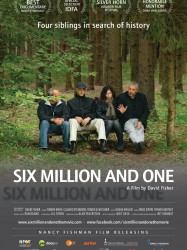
Six Million and One (2012)
, 1h33Genres Documentaire
Thèmes Le racisme, Religion, Documentaire sur la discrimination, Documentaire sur le droit, Documentaire sur la guerre, Documentaire historique, Documentaire sur une personnalité, Documentaire sur la religion, Politique, Religion juive, Documentaire sur la Seconde Guerre mondiale
Note66%





Joseph Fischer's memoir was discovered only after his death. His children refused to confront it, except for David, the filmmaker, for whom it became a compass for a long journey. When David found it unbearable to be alone in the wake of his father's survival story and in his struggle not to lose his sanity, he convinced his brothers and sister to join him in the hope that this would also contribute to releasing tensions and bring them as close as they used to be. His siblings, for their part, couldn’t understand why anyone should want to dig into the past instead of enjoying life in the present. The journey eventually leads the Fishers into the dark depths of the B8 Bergkristall tunnels, part of the Austrian KZ Gusen II concentration camp, where their father endured forced labor during the Holocaust. Illuminated only by flashlights, they seek meaning in their personal and family histories and undergo surgical and revealing discussions about family, survival and individualism only to come to the realization that they are unable to fully understand their father's past and the events that haunted him. Joseph Fischer's last couple of weeks at Gunskirchen concentration camp, were an inhuman experience that blocked his writing. In order to find out what his father failed to describe about Gunskirchen's liberation David located veterans of the 71st Infantry Division who liberated the camp. The elderly soldiers are still haunted and traumatized by the horrific sights they came across when entering the camp. Through their journey, the Fishers become emblematic of the entire second generation who are still grappling with the experience of their survivor parents.

Hanuszka (2006)
, 1h6Genres Documentaire
Thèmes Le racisme, Religion, Documentaire sur la discrimination, Documentaire sur le droit, Documentaire sur la guerre, Documentaire historique, Documentaire sur une personnalité, Documentaire sur la religion, Politique, Religion juive, Documentaire sur la Seconde Guerre mondiale

Arotzim Shel Za'am (2003)
Origine Israel
Genres Documentaire
Thèmes Afrique post-coloniale, La musique, Religion, Documentaire sur le droit, Documentaire sur la guerre, Documentaire historique, Documentaire sur la musique, Documentaire sur une personnalité, Documentaire sur la politique, Documentaire sur la religion, Le hip-hop, Musique, Politique, Religion juive
Note68%





The film focuses on two young rap artists, Subliminal, an Israeli Jew, and Tamer Nafar, a Palestinian citizen of Israel, and focuses on their music, friendship, and their politicization as public figures. The film traces the relationship between Tamer and Subliminal, as the events of the Second Intifada unfold, and lets the viewer draw conclusions from the souring relations between the two as an individual representation of the polarization process which took place during these years of bloody conflict. In this aspect, the film succeeds in delivering the atmosphere of the loss of hopes for peace after the failure of the Camp David summit between Ehud Barak and Yasser Arafat and the renewed intensity of the conflict since. The film was featured in the San Francisco Jewish Film Festival.
 , 1h
, 1hGenres Documentaire
Thèmes Le racisme, Religion, Documentaire sur la discrimination, Documentaire sur le droit, Documentaire sur la guerre, Documentaire historique, Documentaire sur une personnalité, Documentaire sur la religion, Politique, Religion juive, Documentaire sur la Seconde Guerre mondiale
 , 55minutes
, 55minutesGenres Biographie, Documentaire
Thèmes Le racisme, Religion, Documentaire sur la discrimination, Documentaire sur le droit, Documentaire sur la guerre, Documentaire historique, Documentaire sur une personnalité, Documentaire sur la religion, Politique, Religion juive, Documentaire sur la Seconde Guerre mondiale
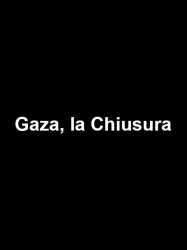
Close, Closed, Closure (2003)
, 53minutesRéalisé par Ram Loevy
Genres Documentaire
Thèmes Afrique post-coloniale, Religion, Documentaire sur le droit, Documentaire sur la guerre, Documentaire historique, Documentaire sur une personnalité, Documentaire sur la politique, Documentaire sur la religion, Politique, Religion juive
Note63%





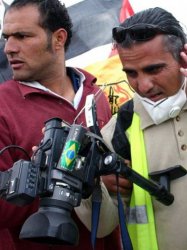
5 Caméras Brisées (2011)
, 1h34Origine Israel
Genres Drame, Guerre, Documentaire, Policier
Thèmes Afrique post-coloniale, Film traitant du cinéma, Religion, Documentaire sur le monde des affaires, Documentaire sur le cinéma, Documentaire sur le droit, Documentaire sur la guerre, Documentaire historique, Documentaire sur une personnalité, Documentaire sur la politique, Documentaire sur la religion, Politique, Religion juive, Documentaire sur les films
Note78%





Lorsque son quatrième fils naît en 2005, Emad Burnat, un cameraman palestinien autodidacte, achète sa première caméra. Au même moment, dans son village de Bil'in, une barrière de séparation est construite et les villageois commencent à résister.
 , 1h27
, 1h27Genres Guerre, Documentaire
Thèmes Le racisme, Religion, Documentaire sur la discrimination, Documentaire sur le droit, Documentaire sur la guerre, Documentaire historique, Documentaire sur une personnalité, Documentaire sur la politique, Documentaire sur la religion, Politique, Religion juive, Documentaire sur la Seconde Guerre mondiale
Note72%





 Connexion
Connexion

